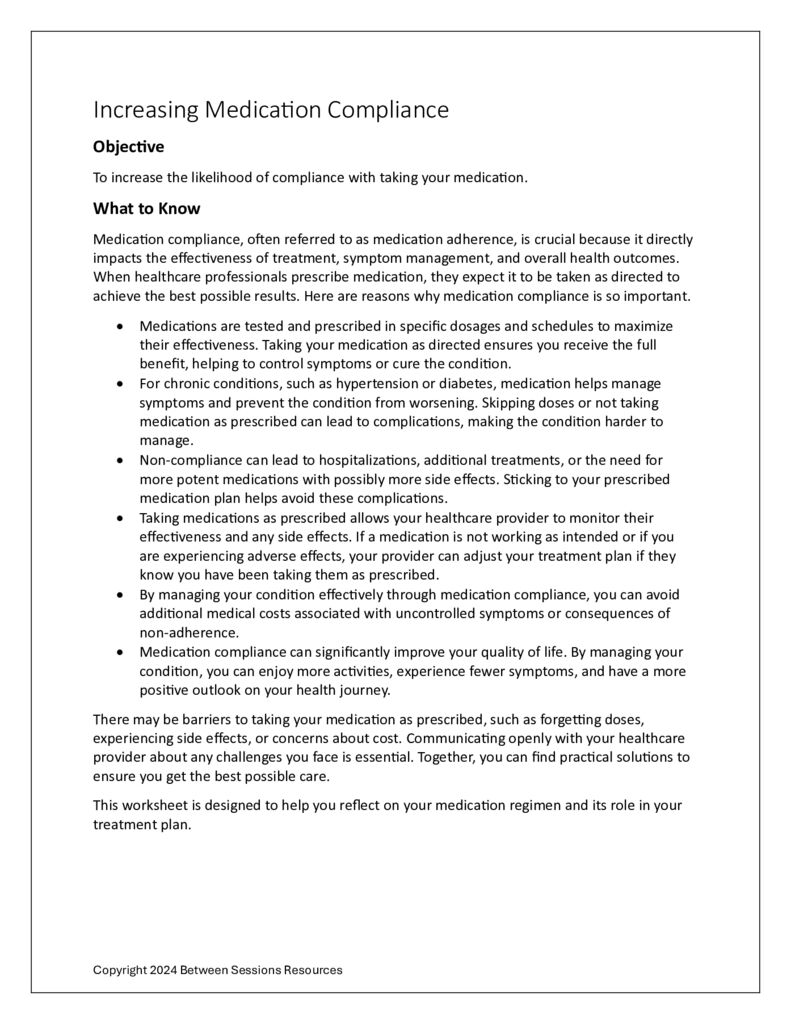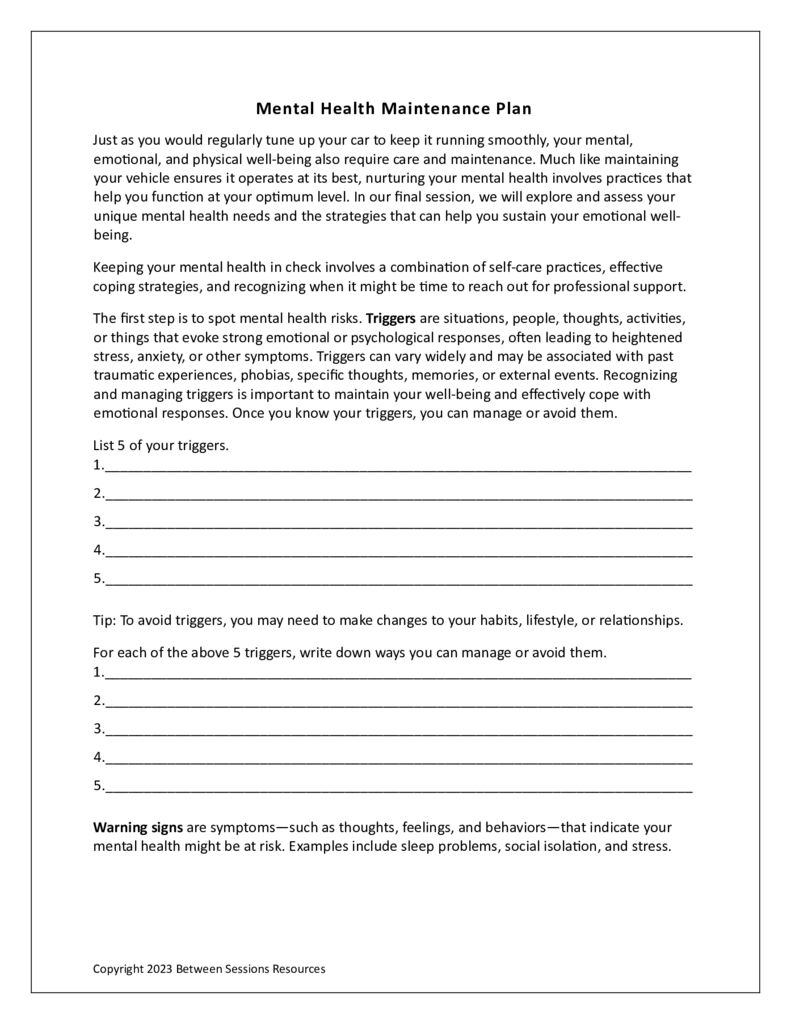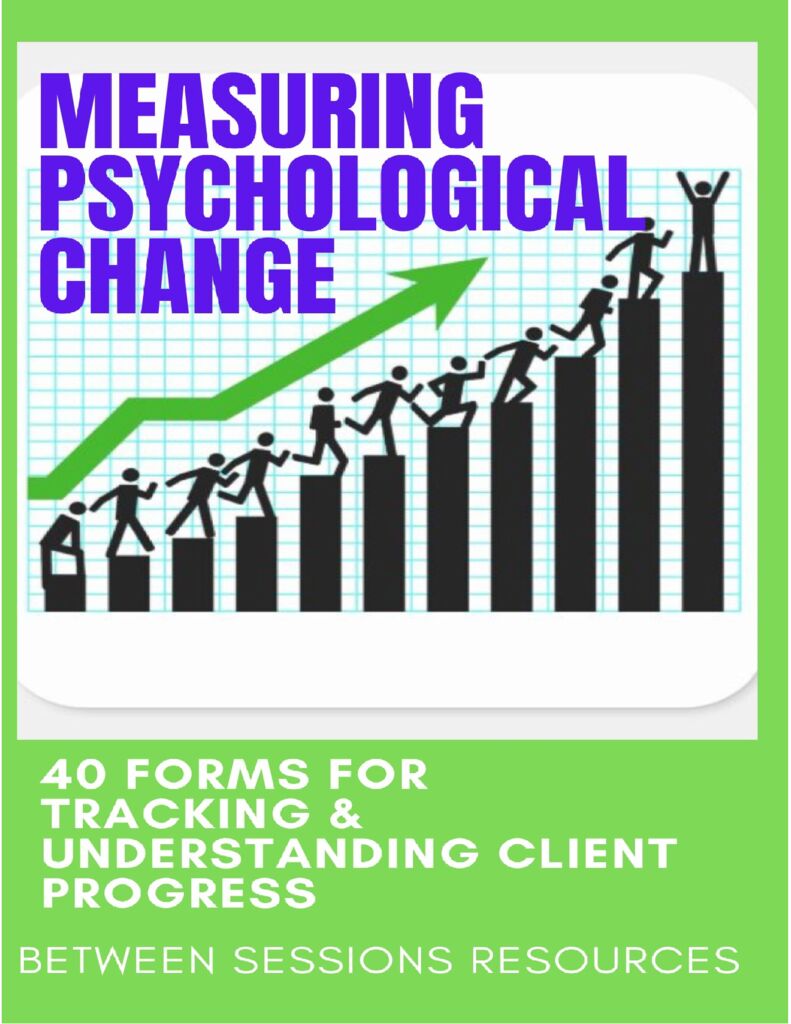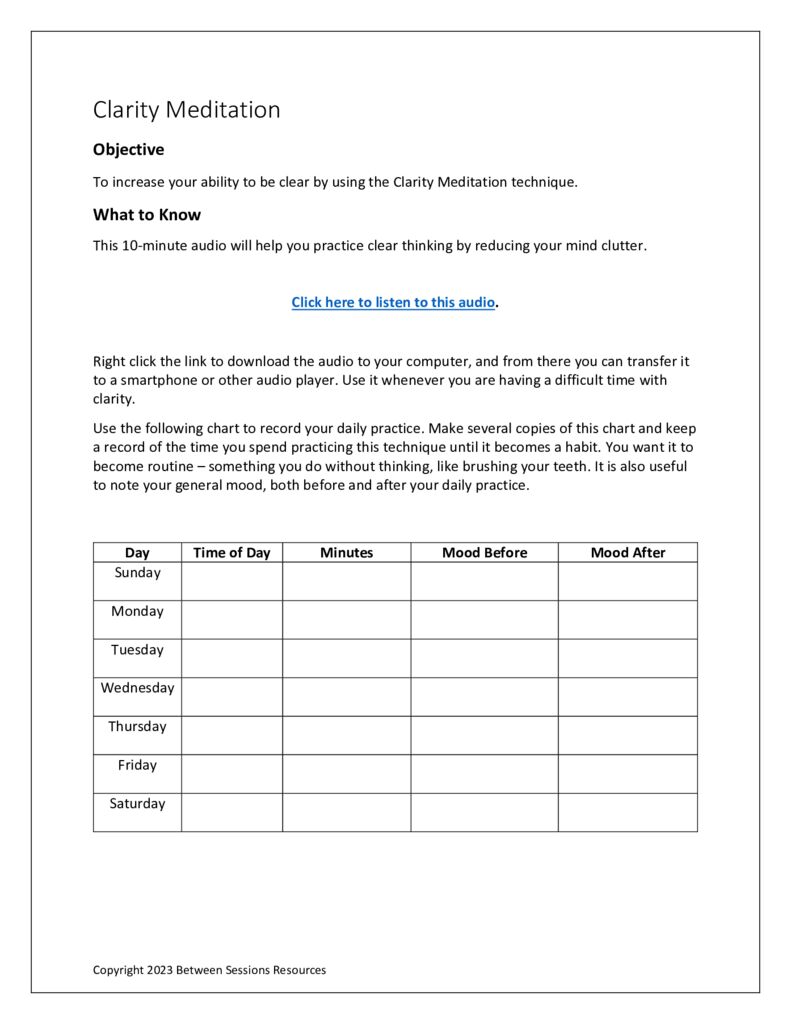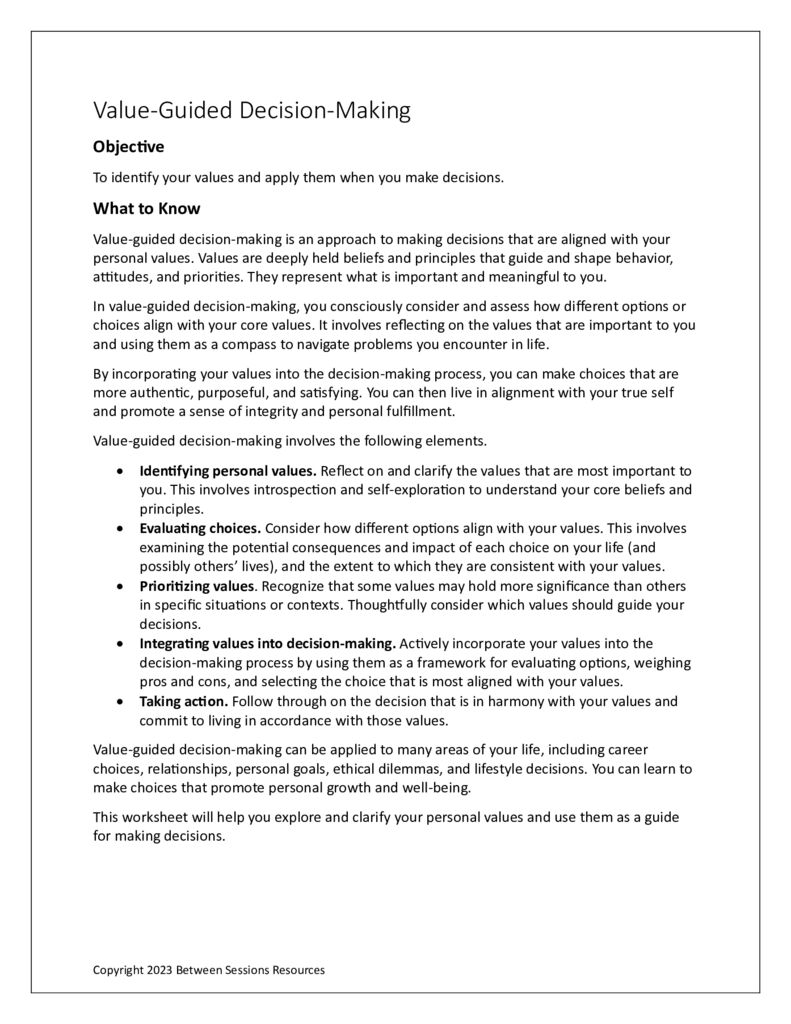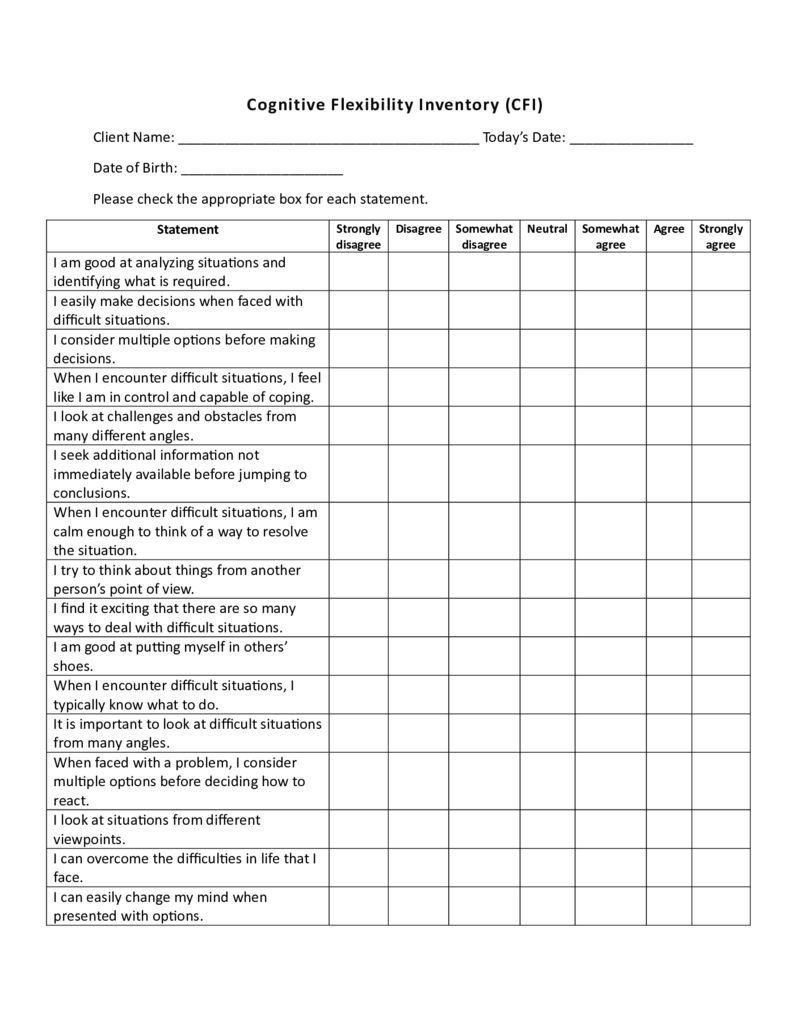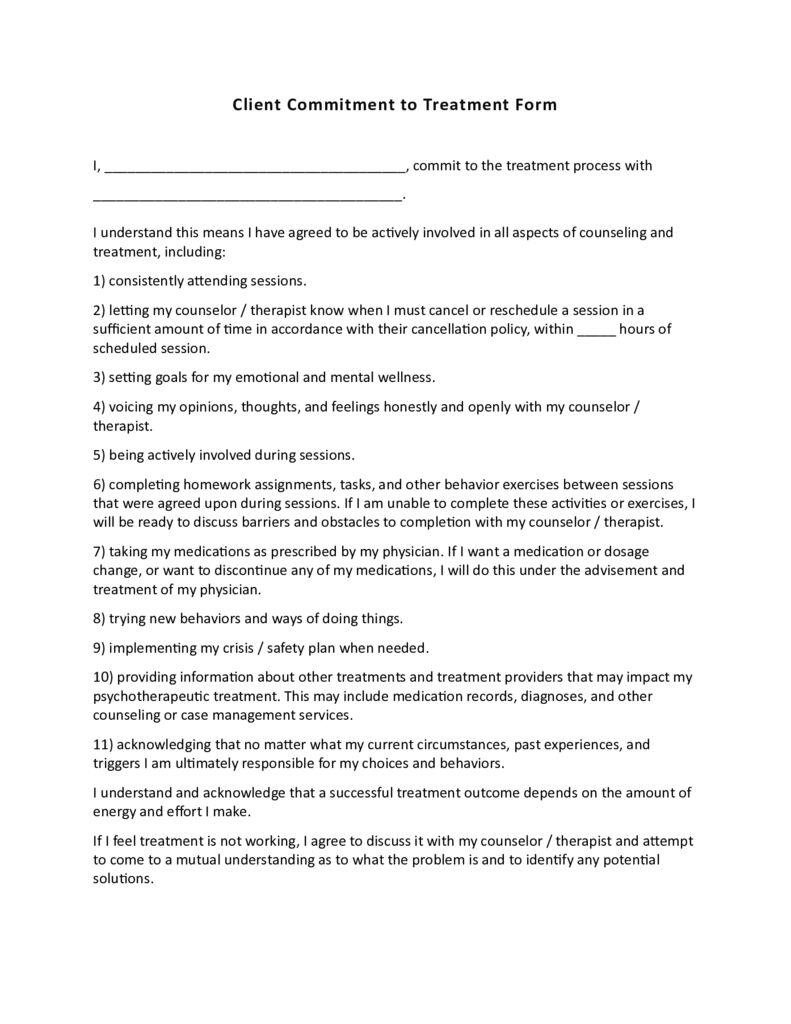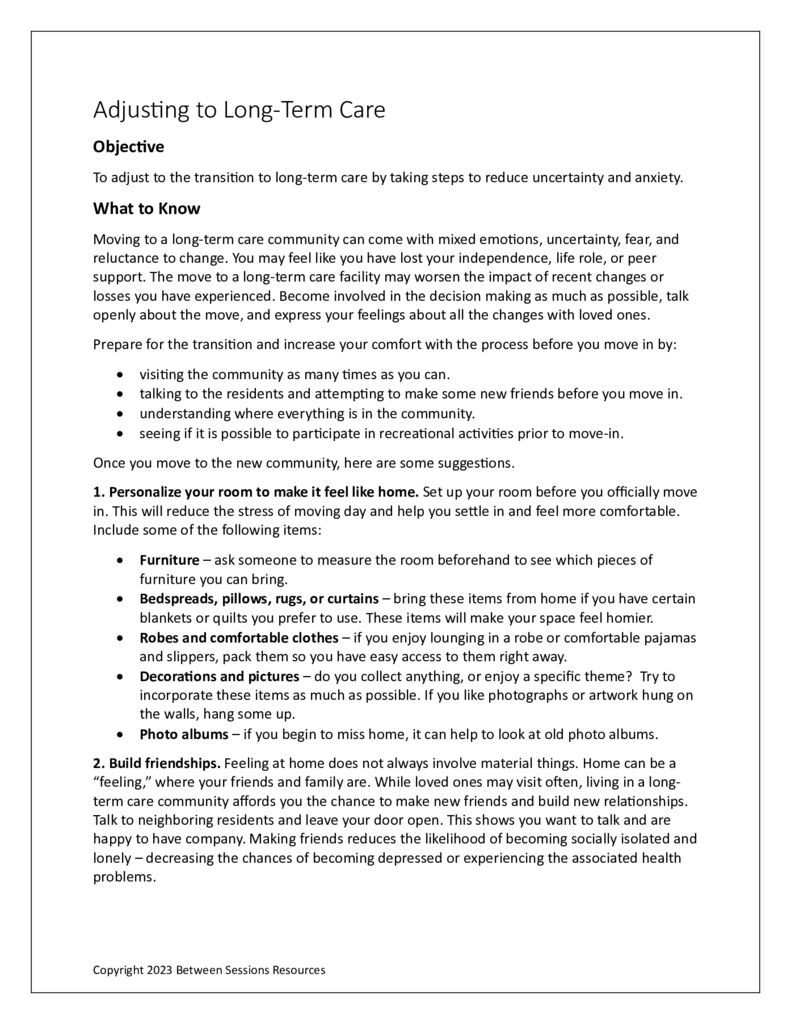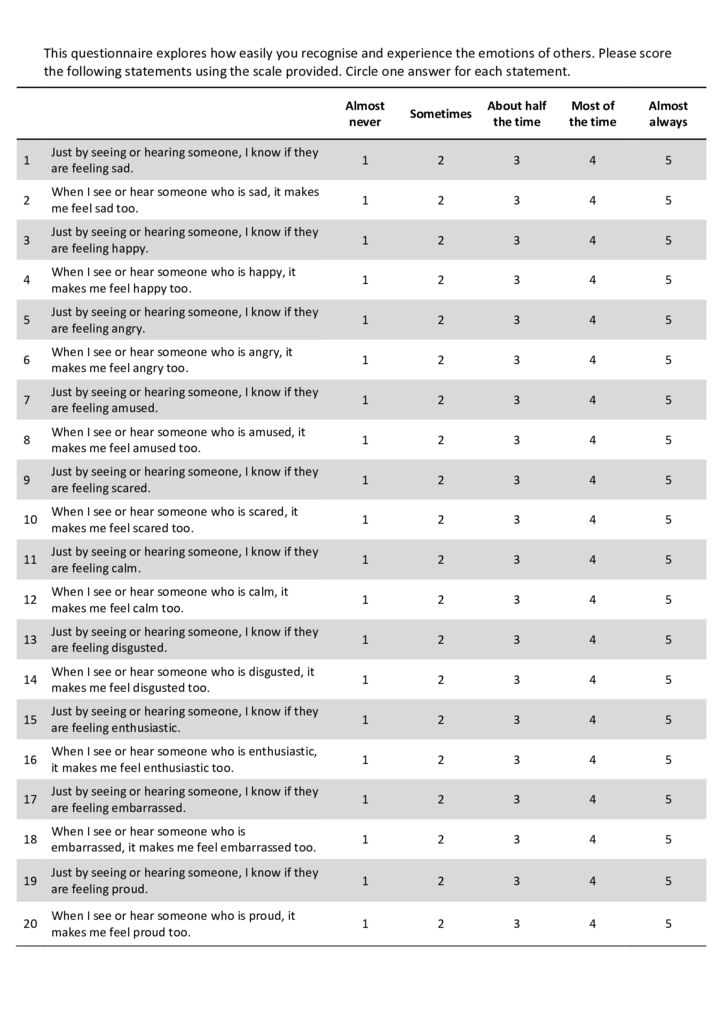As many as 50% of adults don’t take their prescribed medication correctly or at all. This leads to thousands of premature deaths and tens of thousands of people suffering from treatable conditions. This worksheet is designed to help people become more aware of the importance of medicine adherence as part of an overall wellness program. (0424. medication, side effects, compliance, wellness)
Keeping your mental health in check involves a combination of self-care practices, effective coping strategies, and recognizing when it might be time to reach out for professional support. This worksheet helps people keep track of various wellness practices as well as identify the triggers and warning signs of mental health problems. (1223, wellness)
This 10-minute audio is designed to help people clear their heads and develop their focus. (0623, audio, cognitive therapy, CBT)
Value-guided decision-making can be applied to many areas of your clients’ lives, including career choices, relationships, personal goals, ethical dilemmas, and lifestyle decisions. This worksheet can help them identify their values and apply them when they make decisions. (0523, decision-making, values, problem-solving)
The Cognitive Flexibility Inventory (CFI) is a self-report measure to monitor how often individuals engage in cognitive behavioral thought-challenging interventions. Cognitive flexibility enables people to think adaptively when encountering stressful life events, and it is a core skill that helps them avoid becoming stuck in maladaptive thinking patterns. (0423, assessment, cognitive flexibility, executive functioning)
This form is intended to help understand that therapy can only be successful when they commit to the process. The contract format spells out specific behaviors expected from the client like showing up at sessions on time, trying new behaviors, using a safety or crisis plan when needed, and so on. (0423, contract for therapy services, commitment, motivation)
This worksheet is intended to help people entering a long-term care community deal with fear, anxiety, and the mixed emotions that can accompany this transition. This worksheet gives suggestions to help deal with the understandable anxiety and tasks to complete to address the practical aspects of the move. (0223, elder care, transitions, elderly)
The Perth Empathy Scale (PES) is a 20-item self-report measure of empathy ability. The PES measures people’s ability to recognize emotions in others (cognitive empathy) and vicariously experience others’ emotions (affective empathy), across positive and negative emotions. (0123, assessment, empathy)
This simple journal will make every session more meaningful! Within 24 hours after each session, the client is prompted to create notes on 8 areas about what happened in the session, including important things discussed in-session; feelings (expressed and unexpressed), unexpressed thoughts, and homework assignments. Then, before each new session, the client is prompted to respond to quotes about their thoughts, feelings, creativity, and much more. There are also two reoccurring rating scales that ask clients to rate their progress and assess their mood. (1022, journal, homework assignments)

